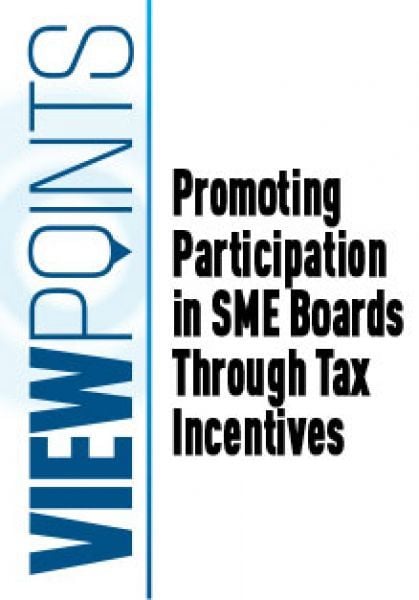
Promoting Participation in SME Boards Through Tax Incentives: A Global Overview
Over the last two decades, a large number of stock exchanges have established dedicated market segments for small and medium-sized enterprises (SMEs). This trend accelerated during the global financial crisis; as banks tightened credit, both policymakers and exchange operators saw an opportunity for equity-based finance for SMEs. In order to encourage listings, exchanges and their regulators have undertaken a number of measures, including reducing listing requirements of various kinds, reducing the various costs associated with listing, and providing enhanced support to new issuers throughout the process. Apart from and in addition to these measures, some policymakers have offered tax incentives of various kinds, both to issuers and investors, as a way to both encourage new listings and to increase trading activity.
This report explains three common models of tax incentives for attracting investors to allocate capital to SME equity. It then looks at examples of corporate tax incentives offered to SME issuers.
Key Takeaways
- Tax incentives for investors typically fall into three models: back-end exemptions on stamp duties and/or capital gains tax; tax offsets based on the value invested directly into SME equities; and tax offsets based on the value invested into SME investment vehicles.
- Although recent evidence suggests that tax incentives will motivate some investors to increase their investments in SME public equity shares, they are not the determining factor. Investors more often point to the need for market liquidity, a strong regulatory environment, and adequate information disclosure as key considerations when deciding to invest in firms listed on SME boards.
- Reductions in corporate income tax for listed SMEs are less common than incentives for investors, but a number of countries offer tax benefits to listed firms. Prominent examples are Thailand and Jamaica, where policymakers have targeted tax benefits specifically to firms listed on SME-dedicated market segments.

